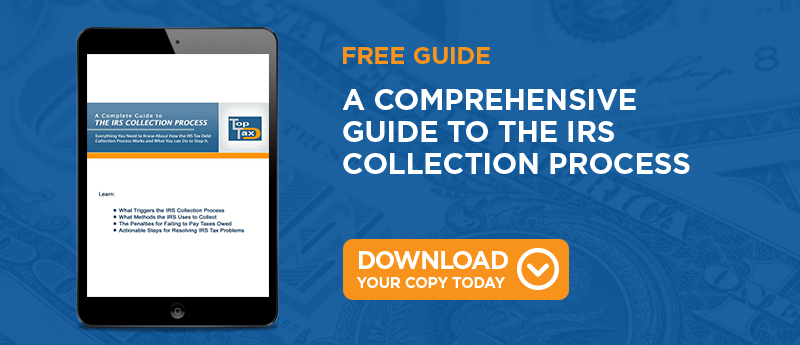Are you currently facing an IRS tax levy? If so, you might be concerned about what the levy will do to your credit, your assets, and your finances. While an IRS tax levy can be frightening, there are ways that taxpayers can try to seek some relief from this action. The key to resolving a tax levy is getting as much information as you can about what to expect during the procedure. Here are a few common questions about IRS tax and bank levies.
1. What's the difference between an IRS tax levy and an IRS tax lien?
If you've recently received notice that the IRS will be placing a tax levy on your assets, you may wonder how a levy differs from a tax lien. A lien is used to place a claim on your assets so that the IRS can claim any proceeds from a sale. For example, if you own a piece of land and the IRS places a tax lien on that land, the agency will receive first considerations if you sell the property.
On the other hand, a tax levy gives the IRS the legal right to ownership of the asset. Using the same example above, if the IRS places a tax levy on your property, the agency now has the right to sell it and use the proceeds to satisfy your tax debt. A tax levy can also be enforced against other types of assets such as bank account funds, cash, and automobiles.
2. When does the IRS impose a tax levy?
Typically, a levy is enforced in situations when a taxpayer is seriously delinquent on his or her tax debt and has made no attempts to clear the debt with the agency. Before enforcing a levy, the IRS will send several written notices of unpaid tax to the taxpayer's address of record. If the taxpayer doesn't respond to these notices, the agency will eventually issue a final notice explaining that the IRS will impose a levy in 30 days. If the tax debt is still unsatisfied at the end of the 30-day period, the IRS will move forward and impose the levy.
3. What can a taxpayer do to release an IRS tax levy?
If your 30-day final notice period has not yet expired, you still have the option to file an appeal. Generally, you'll need to meet certain criteria in order to have your appeal request accepted. These conditions include having the levy enforced while you are in bankruptcy, having paid all of your taxes before the levy was imposed, or being an innocent spouse who had no involvement in creating the tax debt.
Even though facing an IRS tax levy can be harmful to the state of your finances, you may have a few options to appeal your judgment. With the answers to these common questions about IRS tax and bank levies, you'll be better prepared to deal with this process.
*Image courtesy of freedigitalphotos.net


